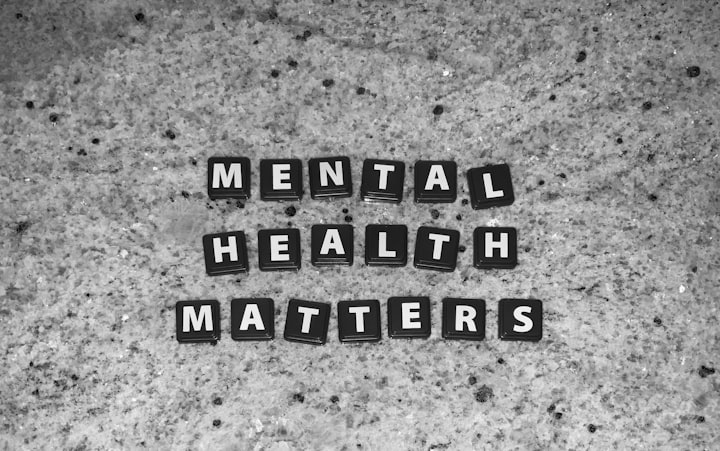
Introduction
Mental health is an integral aspect of human well-being that influences our emotional, psychological, and social functioning. It shapes how we perceive ourselves, interact with others, and cope with life's challenges. Mental health encompasses a broad range of factors, from emotional stability and resilience to cognitive function and social adaptability. In recent years, societies worldwide have recognized the paramount significance of mental health and its impact on individual lives and the community as a whole. This essay delves into the multifaceted importance of mental health, addressing its implications for individuals, families, workplaces, and society at large.
Enhancing Individual Well-Being
The most apparent and fundamental reason for prioritizing mental health lies in the significant improvements it brings to individual well-being. Good mental health allows individuals to experience emotional stability, reduced stress, and increased happiness. A sound mental state enables people to navigate the complexities of life with a greater sense of purpose and self-awareness. When mental health is compromised, individuals may experience anxiety, depression, or other mental disorders that hinder their ability to function optimally. By addressing mental health concerns early on and providing appropriate support, individuals can live fulfilling lives and achieve their potential.
Building Stronger Relationships
Mental health plays a pivotal role in the formation and maintenance of relationships. Positive mental well-being fosters empathy, effective communication, and emotional regulation, all of which are essential for healthy and meaningful connections. Conversely, when individuals suffer from mental health issues, their relationships can suffer as well. They may experience difficulties in understanding and supporting their loved ones, leading to strained relationships and potential conflicts. By promoting mental health awareness and support, we can strengthen personal bonds and create a more compassionate and connected society.
Boosting Academic and Professional Performance
For students and professionals alike, mental health directly influences academic and occupational performance. In educational settings, students facing mental health challenges may struggle with concentration, memory, and overall cognitive abilities. This can lead to academic underachievement and hinder their long-term educational and career prospects. Similarly, in the workplace, employees with poor mental health are more likely to experience reduced productivity, increased absenteeism, and higher turnover rates. Prioritizing mental health in educational institutions and workplaces can, therefore, enhance learning outcomes and workplace productivity.
Breaking the Stigma
Unfortunately, mental health has long been plagued by stigma and discrimination, making it challenging for those in need to seek help and support. This stigma creates barriers to early intervention and treatment, exacerbating mental health issues and leading to negative outcomes for individuals and society. By acknowledging the importance of mental health and promoting open conversations, we can break down the stigma associated with mental illness. This shift can encourage individuals to seek help without fear of judgment, ultimately improving access to mental health services and reducing the burden of untreated conditions on society.
Addressing the Global Mental Health Crisis
The world faces a growing mental health crisis, with increasing rates of mental health disorders affecting people of all ages and backgrounds. Factors such as urbanization, economic pressures, social isolation, and the impact of traumatic events contribute to this crisis. Neglecting mental health can lead to severe consequences for society, including higher rates of suicide, substance abuse, and chronic illnesses. By recognizing the urgency of the situation and investing in mental health services, governments and organizations can mitigate the crisis and pave the way for healthier and happier communities.
Reducing Healthcare Costs
Prioritizing mental health can also have significant economic benefits. By addressing mental health issues early on and providing appropriate treatment and support, we can prevent the escalation of conditions, reducing the strain on healthcare systems and associated costs. Untreated mental health issues often lead to more severe complications, necessitating more extensive and costly interventions later on. Investing in mental health promotion and prevention programs can lead to substantial long-term savings for both individuals and society as a whole.
Enhancing Community Resilience
Communities with strong mental health foundations are more resilient in times of crisis and adversity. When individuals possess the tools to cope with stress and trauma, they can rebound more effectively from challenging situations. This enhanced resilience translates to better community cohesion and mutual support during times of crisis, such as natural disasters, pandemics, or economic downturns. A mentally healthy community can mobilize resources and work together to overcome challenges, fostering a sense of unity and collective strength.
Fostering Innovation and Creativity
Mental health is closely linked to creativity and innovation. A positive mental state allows individuals to think more freely, engage in creative problem-solving, and generate new ideas. In contrast, mental health challenges can stifle creativity and hinder the development of innovative solutions to societal problems. Nurturing mental well-being not only benefits individuals but also enriches society by promoting an environment that encourages innovation and progress.
Conclusion
The importance of mental health cannot be overstated. It is a foundational element of overall well-being that significantly impacts individuals, families, workplaces, and society at large. Prioritizing mental health leads to better individual outcomes, stronger relationships, improved academic and professional performance, and reduced healthcare costs. Additionally, it helps break down the stigma surrounding mental health, address the global mental health crisis, enhance community resilience, and foster creativity and innovation. By acknowledging and investing in mental health, we can create a healthier and more thriving society for everyone.





Comments
There are no comments for this story
Be the first to respond and start the conversation.